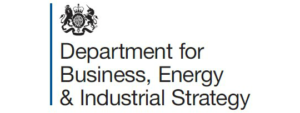 The government seeks views on changes to the capacity market that would affect both existing and future contracts.
The government seeks views on changes to the capacity market that would affect both existing and future contracts.
It proposes to change the regulations so that the capacity market supplier charge is collected based on gross, instead of net demand.
That would effectively remove a large chunk of revenue from embedded generators with capacity market contracts. Currently, those generators receive an income stream both from the capacity market contract itself, and the money suppliers pay them for helping them to reduce their use of the transmission system. By changing the charging methodology, government will remove the latter element, which it suggests is worth around £15/kW – almost as much as capacity market payments.
What is more, the changes will affect contracts already awarded, as the department for Business, Energy and Industrial Strategy said grandfathering of existing contracts is not on the cards.
According to the consultation document, “the Government recognises the challenge to investors in absorbing changes to revenue streams that they may have factored into business cases. However, to the extent that an investor/CM participant assumes a future revenue as a result of embedded benefits from a CM levy, they ultimately do so at their own risk; and as such they should factor in the possibility that this levy could be subject to change in future and discount it accordingly, as with other variables that an investor needs to consider,” it states. “The Government does not, therefore, propose to introduce grandfathering arrangements.”
The action is part of a pincer movement by BEIS, Defra and regulator Ofgem in trying to curb unintended consequences of interventions in the energy market. They believe small plant operators may be over-rewarded for the generation they deliver, with payments to maintain the transmission system affected as a result.
However, some analysts believe sweeping changes by Ofgem to the embedded benefits regime without a proper review could be disastrous for firms with onsite generation as well as dedicated small power plants.
In addition, by making retrospective changes to contracts, government may open itself up to the possibility of legal challenge.
See the consultation here.
Related stories:
Free 2016 demand-side response report
BEIS tightens capacity market rules in bid to build large power stations
Ofgem moots swift cap and floor regime to cut embedded benefits
Hitting on-site generation ‘will drive up bills and fail to incentivise new gas’
Triad, capacity market, CfD and RO: Prepare for price increases, warns SmartestEnergy
Major changes to capacity market and distributed generation charging regime proposed
Energy brokers and TPIs warn early capacity market could add 5% to power bills
Early capacity market costs to hit energy bills
Higher credit cover and penalties for capacity market providers
Capacity market closes with no new gas as aggregators warn of £75/MW hour price spikes
Capacity auction fails to incentivise new gas plant
Ofgem: Energy flexibility will become more valuable than energy efficiency
Follow us at @EnergystMedia. For regular bulletins, sign up for the free newsletter.




I’m personally in favour of a review; the end user is paying significant pass through charges for this type of generation. I would personally prefer a system which encourages reduction, rather than generation and assists companies with a one off payment towards energy efficient improvements’, such as replacing inefficient motors / pumps etc, with direct drive alternatives where at least a 20% – 30% reduction can be demonstrated pre and post delivery. Companies have seen a 30% increase in pass-through charges in the past 12 months, as a result of the recent changes to the Capacity Market due to increased generation, ROs’ etc, as opposed to reducing demand. Why do we always treat the symptoms rather than the cause??
ECAs’ are no good to public sector, charities and other not for profit organisations, but Zero Rated VAT could assist greatly in stimulating capital investment in energy efficiency, and might even help boost the economy?
You are in favour of a mechanism that will disincentivise the cheapest and most flexible capacity (embedded gas gensets that is, lets forget diesels for now as there are few of these in the T4 Capacity Market and DEFRA will remove these from the new-build market in 2018) which minimises system losses and minimises transmission-related costs (to the consumer) in favour of far more expensive technologies that will cost the UK almost double in Capacity Market contracts, are less flexible and, being transmission-connected, place a higher financial burden on the electricity bill payer – costs which will rise dramatically as decarbonisation of heat and transport increases demand (at the distribution level)? And you are happy for the nascent energy storage industry (principally embedded, wholly reliant on the Capacity Market) to be shot down as it struggles to get off the ground (so much for the £8bn in “smart power revolution” savings proposed by the Infrastructure Commission)? Wow! You have a perfectly valid axe to grind in promoting much-needed energy efficiency (the more the merrier)…. but really? Really?
Hugh; I feel you may be making assumptions, which are unfounded and incorrect in your response.
I am in favour of onsite generation (OSG), in fact I promote it tirelessly in my current role, I just don’t base my business case on others subsidising the business, instead I promote the benefits to the client.
I am in favour of decarbonisation, but if the end user required significantly lower demand, then as a result I accept your comment there would be reduced competition in the market place and hence an increase in energy price. That said if we require 1GWh of Energy at £0.12, rather than 1.5GWh at £0.10 there is still an economy of scale, switching to reduced carbon fuels and district heating would make the generators’ more profitable whilst significantly reducing CO2. Whatever we do going forwards there will always be a reliance on the grid to provide energy, if our OSG requires maintenance, we require grid imported electricity, when the sun doesn’t shine PV goes off-line, same with wind etc, but the continued abuse of FiTs, RHI by unscrupulous profiteering generators has to be reviewed and that was my point.
I am with you Sean. The ‘grid’ is a necessity, but being comprised of transmission and distribution elements, we can reduce our burden on (and associated costs from) the transmission network. I have just read a quote on Twitter: “Every weapon that Gov has been fired at diesel has missed and only caused collateral damage”.
We’d welcome further insightful comment on this issue.